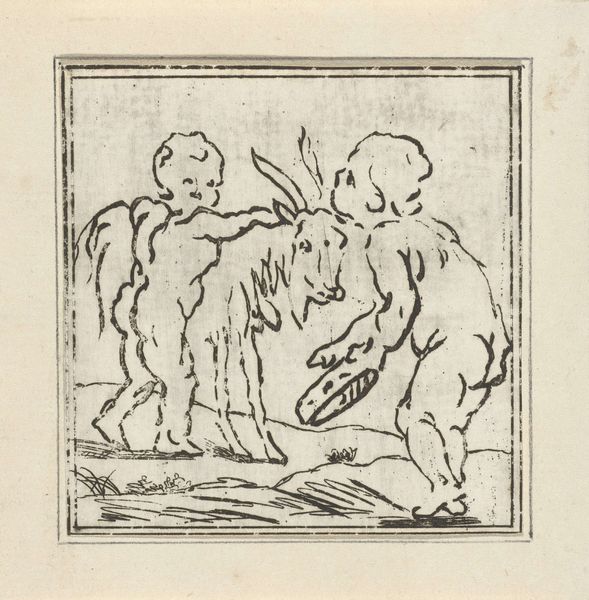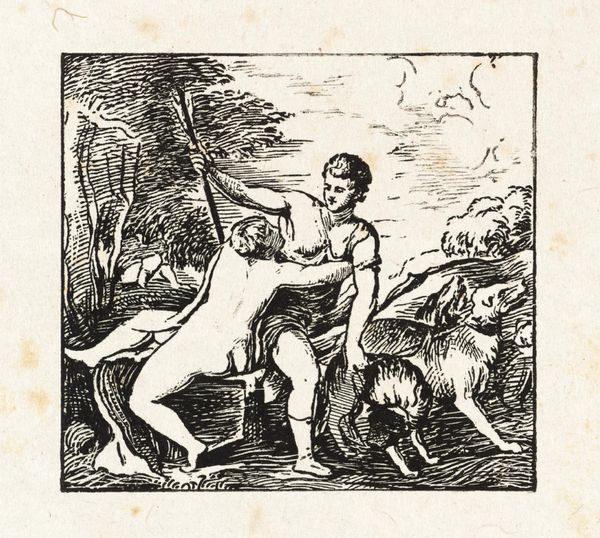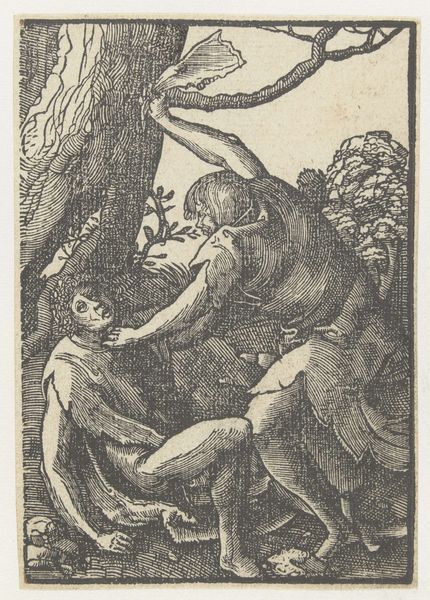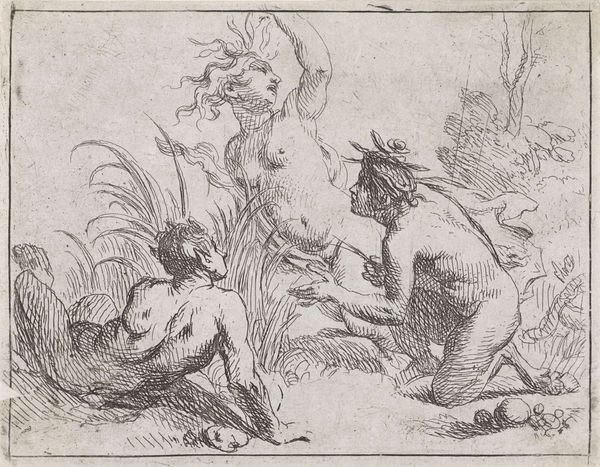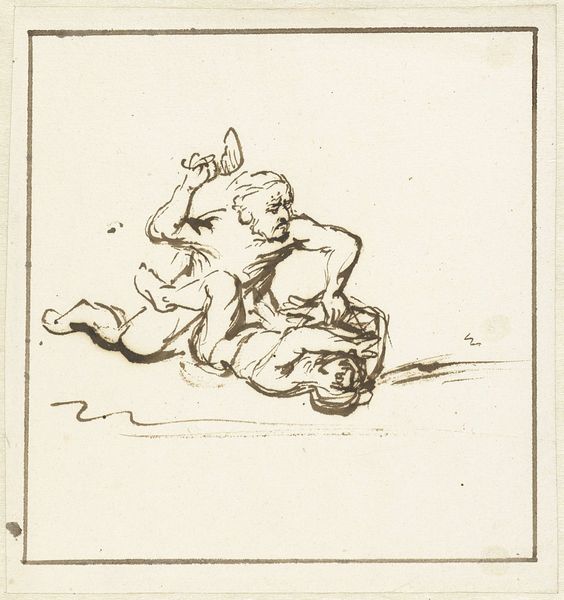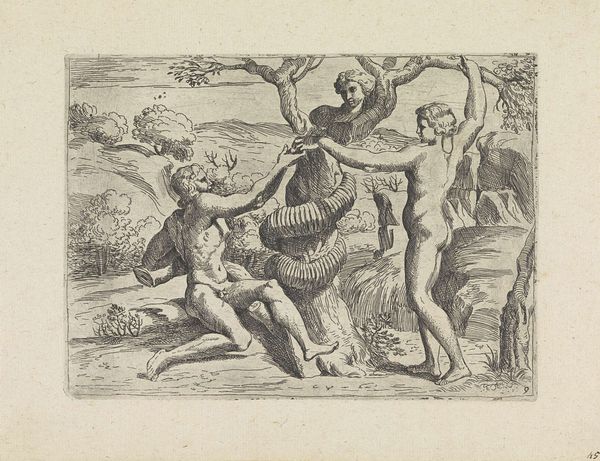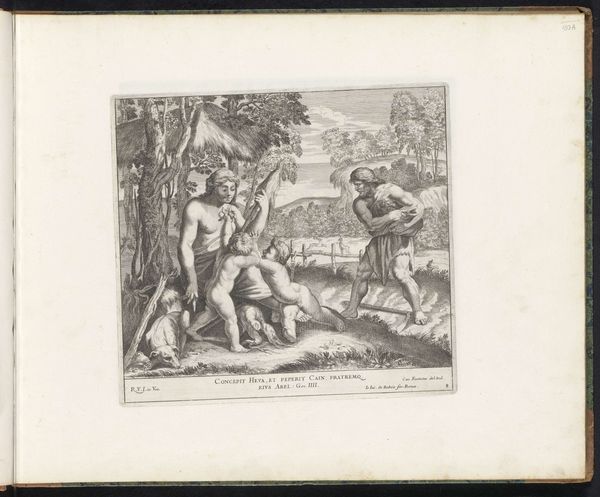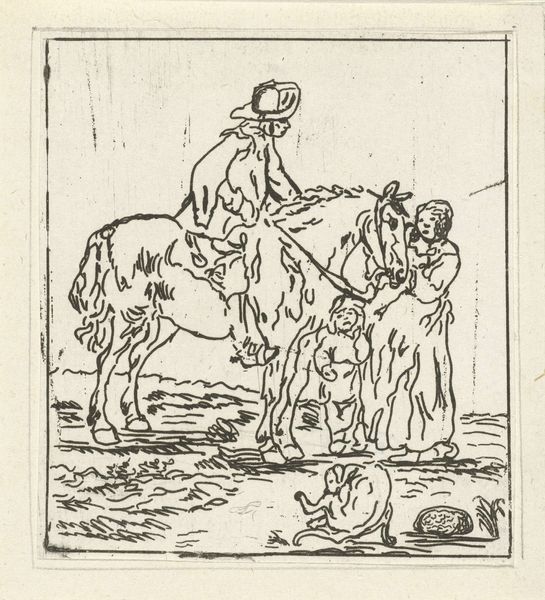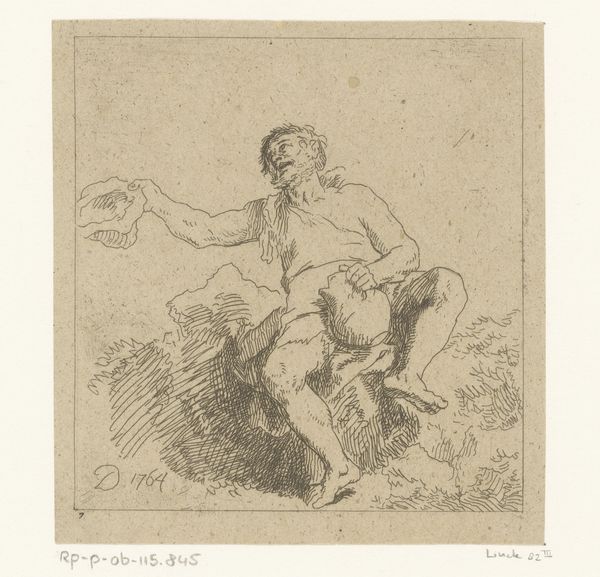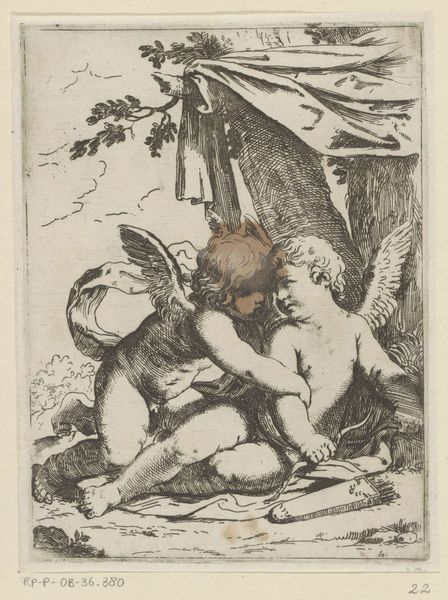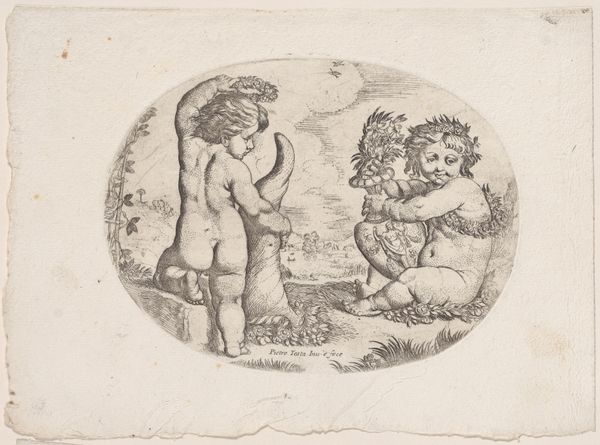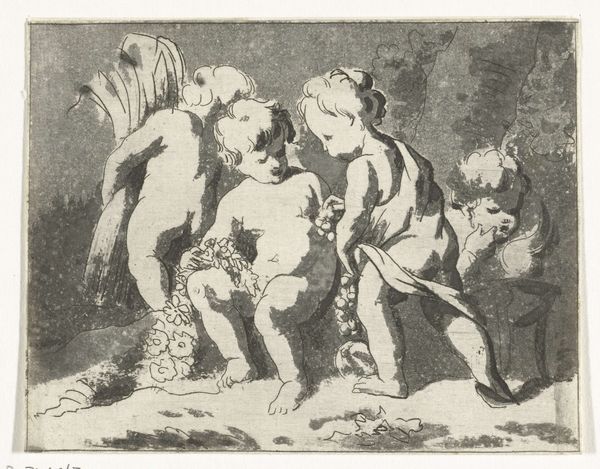
drawing, ink, pen
#
drawing
#
ink drawing
#
baroque
#
pen sketch
#
figuration
#
ink
#
pen
#
genre-painting
Dimensions: height 78 mm, width 80 mm
Copyright: Rijks Museum: Open Domain
This is a delicate etching titled "Twee putti met een bok en tamboerijn", or Two Putti with a Goat and Tambourine, made by Jacob Hoolaart in the 18th century. During the 1700s, Europe was in the midst of the Enlightenment, and in the arts, there was a move towards more decorative and playful themes. Hoolaart situates us in this cultural moment, with the image of putti, those chubby cherubs, symbols of innocence and love which were quite fashionable in the decorative arts of that era. But consider the goat. It stands, quiet and observant, as the putti frolic. The goat suggests something wild, an element of nature untamed by reason. Hoolaart uses the goat to ask: Can you ever truly tame the wildness of youth? Are we meant to? The lone tambourine adds to this theme of nature versus culture. Hoolaart’s work, in its own way, reflects on our desires to categorize and cultivate identity. It gently reminds us of the inherent complexities within us all.
Comments
No comments
Be the first to comment and join the conversation on the ultimate creative platform.
